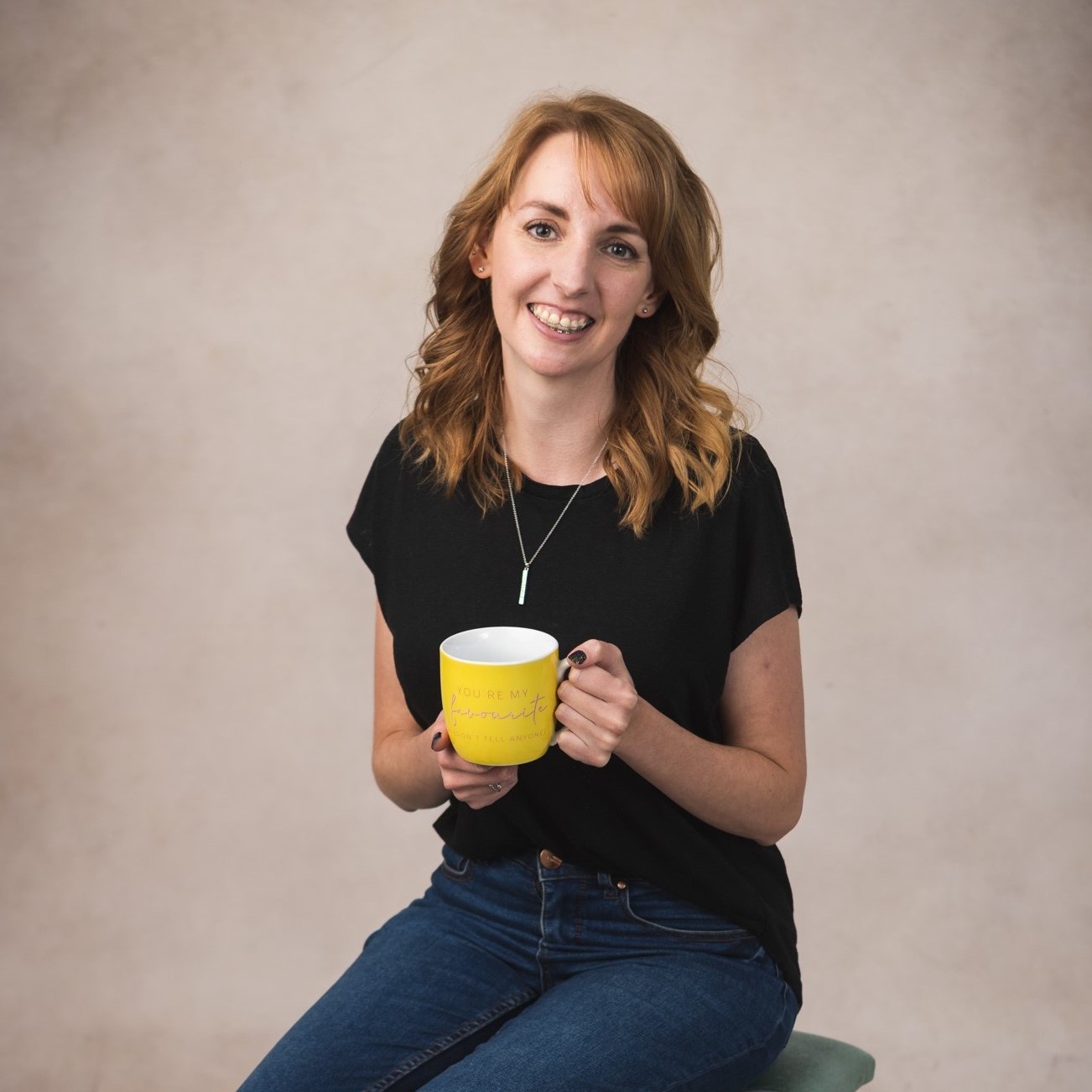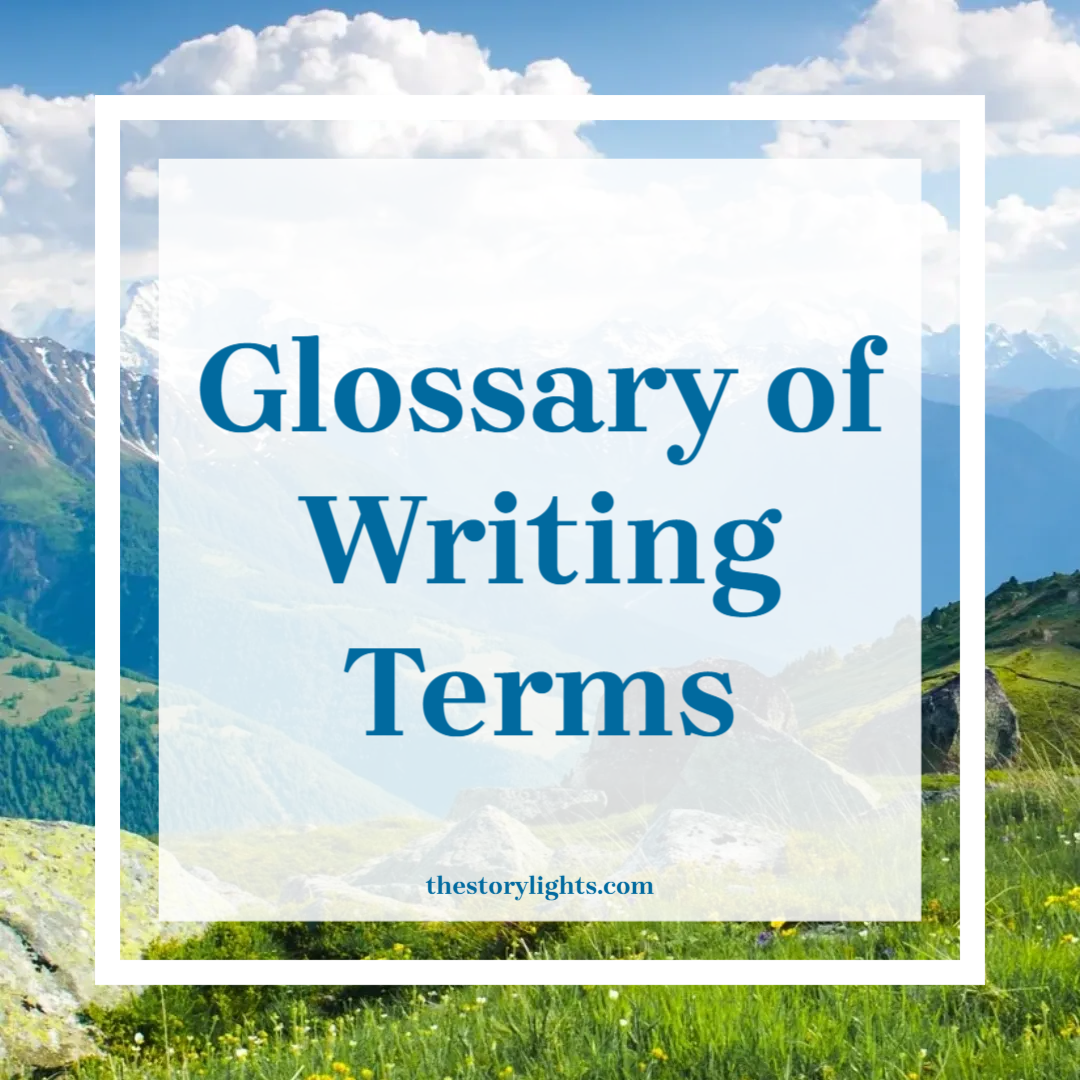Glossary of Writing Terms
By Amy Bryant
Antagonist – The villain of your story. Or, more specifically, the Someone or Something standing in the way of your main character and their goals.
Backstory – Events that happened in the lives of characters before the story started.
Blurb – A short description to explain what a book is about and help promote it.
Character Arc – How a character changes over the course of a story. This can be positive (they come out stronger and more experienced than before) or negative (they come out more bitter and troubled).
Cliffhanger – An exciting way to end a chapter or entire book to get readers excited about reading what comes next. (Warning: Can be annoying!)
Climax – The highest point of tension in a story, often the final battle between the hero and villain. The climax resolves the main conflict of the story and is the moment your main character succeeds (or fails) in reaching their goals.
Conflict – Problems and struggles that a character must overcome to achieve their goals. Opposing forces that can be external or internal. (There’s no story without conflict!)
Dialogue – A conversation between characters, where quotation marks are used to show what’s being said.
Dialogue Tags – Short little phrases that show who’s speaking. (Example: “Hello,” he said.)
Draft – An early version of a story. An author usually writes many drafts of their book, from early “rough” drafts that get down the bulk of the story, to later drafts for fixing finer details.
Edit / Editing – Making changes to a story or novel by correcting mistakes and deciding what to keep or take out. Preparing work to be published or shown to others.
Editor – Someone who helps an author edit their story. There are different types of editors from those who look at big picture issues (Content Editors) to those who polish up wording (Line Editors). Some editors work at publishing houses, helping choose which books the publisher buys, while others work for themselves and can be hired by authors.
Fiction – Made up stories or works of imagination.
Flashback – Going back in a story to tell an earlier event. A scene set earlier than the main story.
Genre / Fiction Genres – Categories of stories such as Historical, Mystery, Thriller, and Fantasy. There can be many subgenres as well.
Hook – Something early on in a story that captures a reader’s attention. (Hooks can be small things in the first line and/or bigger events in the first chapter.)
Inciting Event – (Also called the Catalyst.) The moment that catapults the main character into the events of the story and kicks everything off. (Example: When Lucy goes through the Wardrobe in The Lion, The Witch, and the Wardrobe.)
Literary Agent – Someone who represents an author and their work, helping sell it to publishing house editors. They act as the go-between between the author and the publishing house.
Main Character (MC) – The hero of the story, also known as the protagonist. The person from whose point of view the story is told.
Manuscript – A handwritten or typed out copy of an author’s work, such as a story or novel.
Middle Grade Books (MG) – Books for readers aged 8-12. (Also Upper Middle Grade, which can be more ages 10-14 roughly.) For example, Keeper of the Lost Cities and the earlier Harry Potter books.
Midpoint – The very middle of a story, often involving a major event or turning point that changes everything.
Nonfiction – Writing about facts and real events, not made-up stories as with fiction.
Outlining – Planning out your story ahead of time, including major events/turning points and how it all will end.
Pantser / Pantsing – A discovery writer. Someone who “flies by the seat of their pants” when writing, as opposed to someone who outlines their story first.
Plot – What happens in a story. The sequence of events that go together to make up a story.
Point of View (POV) – The viewpoint or position of the character telling the story. What perspective the story is told from.
Point of View Character – Whoever is telling the story at any given moment. Sometimes a whole book is told from one character’s perspective, while other books switch from chapter to chapter, or scene to scene.
Proofread – To read through a final manuscript checking for errors.
Protagonist – The hero of the story. Almost always the main character, the person who is driving the story by their decisions and actions.
Publishing House – A company that publishes books.
Resolution – The conclusion of a story’s plot. The part where the main problem is resolved, final questions get answered, and any loose ends are tied up. (Except for any cliffhangers of course!)
Scene – The building blocks or smaller sections of an overall story.
Self-Publishing – An author publishing their book themselves, as opposed to with a traditional publishing company.
Setting – Where or when a story takes place. This includes the overall setting, such as Medieval England, as well as individual locations visited in the story, such as a stable or castle.
Speculative Fiction – A broad category of fiction for stories with made up elements, such as Fantasy and Science Fiction.
Traditional Publishing – Publishing a book through an already established publishing house (such as HarperCollins or Penguin Random House), as opposed to an author publishing it themselves.
Work in Progress (WIP) – The project a writer is currently working on.
Word Count (WC) – How many words are in a story. (Ex: 80,000 or 80k)
Young Adult (YA) – Books aimed at readers aged 12-18. For example, Maze Runner or The Hunger Games.

Amy E. Bryant is an award-winning writer of Children’s and YA Fantasy Adventure (coming soon!) who loves cheering on young writers.
You can follow along with Amy’s journey by signing up to her newsletter, where she shares more about books, writing, and the process of becoming a published author.
Author Website: AmyEBryant.com (Come visit me! 😊)
–
“When she came to write her story, she would wonder exactly when the books and the words started to mean not just something, but everything.”
– The Book Thief

